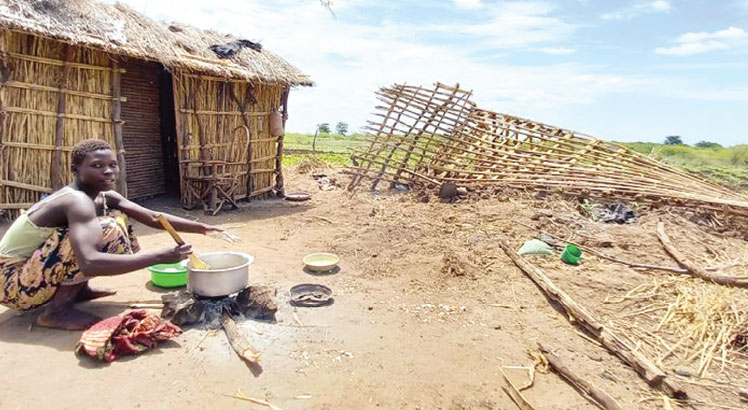Climate change may push 2m more into poverty in Malawi
As CoP27, the UN climate change conference kicks off in Egypt today, the World Bank’s Country report warns that extreme weather can raise Malawi’s poverty rate by eight percent by 2040. Environment Resource Unit, Centre for Science and Environment information manager Madhumita Paul writes:
C
limate change will likely push another two million people in Malawi into poverty over the next 10 years and exacerbate the country’s development challenges, according to a new report.
Climate change-induced extreme weather events can raise the country’s poverty rate by eight percent and drive additional four million people into poverty by 2040, according to the World Bank Country Climate and Development Report (CCDR).
Climate change can reduce Malawi’s GDP by three to nine percent by 2030, six to 20 percent by 2040 and eight to 16 percent by 2050 if the country stays on its current development trajectory, the World Bank estimated.
Seven in every 10 Malawians were under the international poverty line in 2019 and And four out of five Malawians experienced moderate to severe food insecurity between 2019 and 2021.
The report analysed various climate models across multiple scenarios to shape the conclusion. It calculated the influence of climate change on the economy by analysing sector-specific impacts.
The World Bank further evaluated adaptation measures, costs for agriculture, land management, energy, transportation and digital infrastructure while considering macroeconomic and fiscal implications of climate-change.
Malawi is a low-income country, one of the poorest countries in the world. The country lacks economic diversification, largely relying on shrinking foreign earnings from tobacco.
The country, which is considered highly vulnerable to climate change, depends heavily on natural resources and on rain-fed agriculture.
Malawi was ranked 163 out of 182 countries on the 2020 Notre Dame Global Adaptation Index (ND-Gain), which ranks the climate adaptation performance of countries.
Frequency and severity of climate-related disasters in Malawi have increased in recent decades.
Malawi has experienced 16 major floods, a rainfall-related landslide, five storm-related disasters and two severe droughts since 2010.
Cyclone Idai devastated the country in 2019. In 2022, Tropical Storm Ana and Tropical Cyclone Gombe affected about one million people, snatching lives of 46 persons and livelihoods of over 200 000 households.
The country is encountering an economic and social crisis, with unsustainable debt, severe macro-fiscal imbalances, shortages of power and key import commodities, acute lack of foreign exchange and high inflation.
The Covid-19 pandemic, coupled with the war in Ukraine and climate disasters has aggravated the crisis.
Climate change will make it hard for Malawi to achieve its ambitious development goals unless it accelerates policies and programmes as envisioned in its national vision. The country has to complement mitigation efforts with additional investments in adaptation.
The national vision Malawi 2063 aims to transform the country into a lower-middle-income country by 2030 and a self-reliant, industrialised, upper-middle-income country by 2063.

The vision focuses on three pillars of inclusive economic growth — diversified agricultural sector, strong manufacturing sector and the development of urban centres and tourism hubs across the country.
The World Bank suggested boosting investments in climate-resilient infrastructure and halting land degradation and forest loss to improve agricultural productivity and carbon sequestration.
The country can manage climate shocks by optimising the use of — public sector funds, international public finance and private investment — and finding new debt-resilient approaches to development.
The World Bank suggested the country to build climate-resilient infrastructure, halt and reverse widespread land degradation and address climate impacts on productivity.
CCDR from the World Bank Group is a new core diagnostic report that looks at climate change and development.





